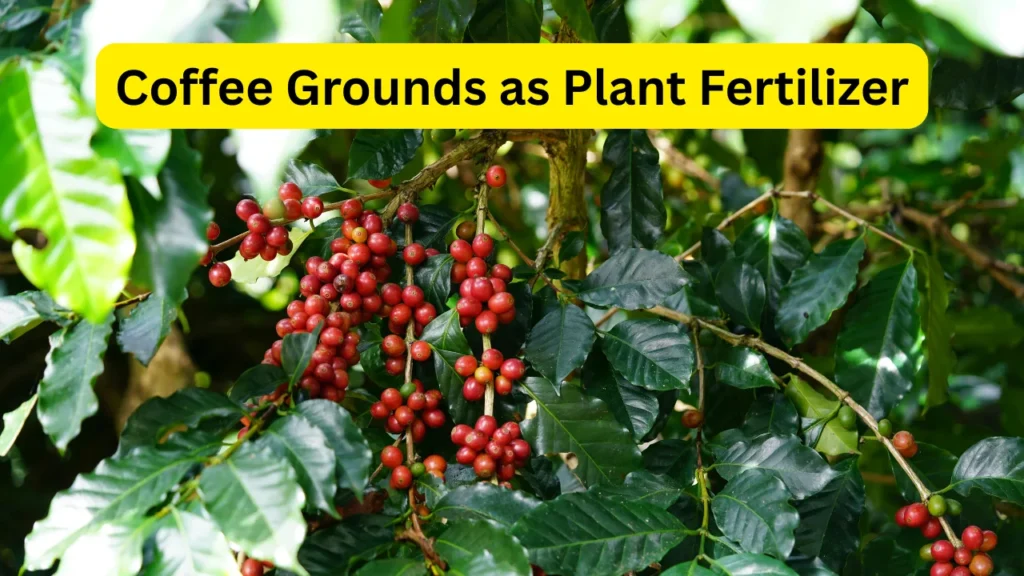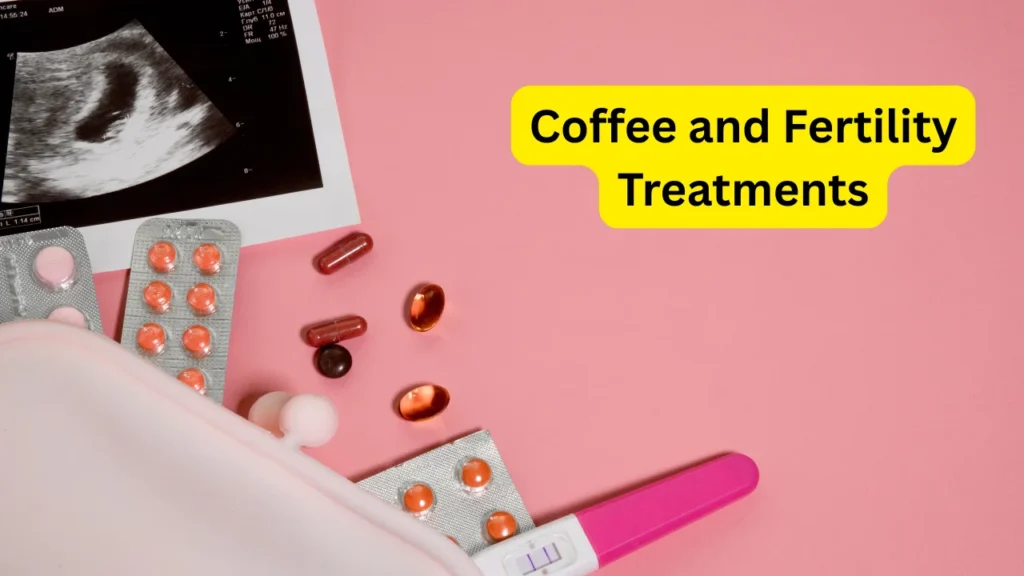You love your morning coffee, but could it affect your chances of starting a family or growing a thriving garden? The connection between coffee and fertility—both human and plant-related—has sparked curiosity. From coffee’s impact on male and female fertility to using coffee grounds as fertilizer, this guide dives deep into the science, myths, and practical tips. Let’s explore how your daily brew interacts with fertility in all its forms.
Coffee and Human Fertility
Coffee is a staple for many, but does it influence your ability to conceive? Research on coffee and fertility offers mixed insights. Let’s break down how your favorite drink might affect male and female fertility, and what you need to know.
Coffee and Female Fertility
You might wonder if your daily latte could impact your chances of getting pregnant. Studies suggest moderate coffee consumption (1-2 cups daily) is generally safe for women trying to conceive. However, excessive caffeine—over 300 mg per day—may slightly reduce fertility by affecting ovulation. Coffee and fertility women is a hot topic, and balance is key. Stick to moderate amounts to avoid potential risks.
Coffee and Male Fertility
What about coffee and men’s fertility? For men, caffeine may have a dual effect. Some studies show that moderate coffee intake can boost sperm motility, improving coffee and sperm fertility outcomes. However, heavy consumption (over 400 mg daily) might lower sperm quality. Coffee and male fertility research suggests keeping intake reasonable to support reproductive health.
Decaf Coffee and Fertility
If you’re cutting back on caffeine, you might turn to decaf coffee and fertility concerns. Decaffeinated coffee has minimal caffeine, making it a safer choice for those worried about fertility. However, the decaffeination process sometimes involves chemicals, so opt for organic decaf coffee and fertility-friendly options. It’s a great alternative for both men and women trying to conceive.
Green Coffee Bean and Fertility
Green coffee bean extract, rich in antioxidants, is often touted for health benefits. But what about green coffee bean and fertility? Limited studies suggest its chlorogenic acid may support hormonal balance, potentially aiding coffee and fertility treatments. However, more research is needed. If you’re considering green coffee and male fertility, consult a doctor before adding supplements.
Coffee Enemas and Fertility
Coffee enemas are a controversial topic in alternative health circles. Some claim coffee enema and fertility benefits, like detoxifying the liver to support conception. However, no solid evidence backs coffee enemas and fertility claims. They may even pose risks, like dehydration. Always talk to a healthcare provider before trying such methods.
Coffee Grounds as Plant Fertilizer

Beyond human fertility, coffee grounds are a popular choice for boosting plant growth. Let’s explore how coffee grounds and eggshells as fertilizer can nurture your garden and which plants love this nutrient-rich combo.
Benefits of Coffee Grounds
Using coffee grounds as fertilizer is eco-friendly and effective. Coffee grounds are rich in nitrogen, which supports plant growth. Coffee grounds and eggshells as fertilizer add calcium and improve soil structure. This combo is especially great for acid-loving plants like roses and blueberries. Coffee grounds as fertilizer pros include affordability and sustainability, but cons include potential soil acidity if overused.
Eggshells and Coffee Fertilizer
Eggshells and coffee grounds as fertilizer work together beautifully. Eggshells provide calcium, while coffee grounds add nitrogen. Crush eggshells finely and mix with used coffee grounds for a balanced homemade fertilizer. Coffee and eggshell fertilizer is perfect for tomatoes, peppers, and cucumbers. Eggshells and coffee grounds good fertilizer for cucumbers can boost yields significantly.
How to Use Coffee Grounds
Wondering how to use coffee grounds as fertilizer? Sprinkle used grounds around plants or mix them into compost. Avoid piling them too thickly to prevent mold. Coffee grounds and Epsom salt as fertilizer can enhance magnesium levels, benefiting leafy greens. For coffee grounds for succulents or cactus, use sparingly to avoid water retention.
Coffee and Other Natural Fertilizers
You can combine coffee grounds with other natural ingredients for a nutrient-packed mix. Banana peels, eggshells, and coffee fertilizer provide potassium, calcium, and nitrogen. Coffee cinnamon and club soda fertilizer can deter pests while nourishing plants. Coffee grounds and wood ash fertilizer add potassium for flowering plants. Experiment with coffee and tea waste as fertilizer for a sustainable garden boost.
| Fertilizer Type | Key Nutrients | Best Plants | Application Tips |
|---|---|---|---|
| Coffee Grounds | Nitrogen | Roses, Blueberries | Sprinkle lightly, mix into soil |
| Eggshells | Calcium | Tomatoes, Peppers | Crush finely, blend with compost |
| Banana Peels | Potassium | Flowering Plants | Chop and bury near roots |
| Epsom Salt | Magnesium | Leafy Greens | Dilute in water, apply monthly |
Coffee and Fertility Treatments

If you’re undergoing fertility treatments, you might wonder how coffee fits in. Coffee and fertility treatments can coexist, but moderation is crucial. Let’s explore how caffeine might affect your journey.
Caffeine During IVF
During in vitro fertilization (IVF), doctors often recommend limiting caffeine. Studies suggest high coffee consumption and fertility issues may be linked, as caffeine can affect egg quality. Stick to 1 cup daily or switch to decaf coffee and fertility-friendly options. Always follow your doctor’s advice to optimize your chances.
Coffee and Hormonal Balance
Caffeine can influence hormones like estrogen, which play a role in fertility. Coffee and female fertility studies show that excessive caffeine might disrupt hormonal balance, potentially delaying conception. Green coffee bean extract and fertility supplements may help, but evidence is limited. Keep your intake moderate to support your body’s natural rhythms.
Coffee and Stress Management
Fertility journeys can be stressful, and coffee might not always help. While a morning brew can boost energy, too much can increase anxiety. Coffee consumption and fertility stress should be managed carefully. Try mindfulness or switch to herbal teas to stay calm during treatments.
Tips for Coffee Drinkers
Here are five practical strategies for balancing coffee and fertility:
- Limit to 1-2 cups daily: Keep caffeine below 200 mg to support coffee and fertility goals.
- Choose organic decaf: Organic decaf coffee and fertility concerns are minimal with chemical-free options.
- Pair with a healthy diet: Support fertility with nutrient-rich foods alongside your coffee.
- Monitor your body’s signals: If coffee causes jitters, cut back to aid coffee and sperm fertility.
- Consult your doctor: Get personalized advice for coffee and fertility treatments.
| Caffeine Source | Caffeine Content (mg) | Fertility Impact | Recommendation |
|---|---|---|---|
| Black Coffee | 95-200 per cup | May affect ovulation | Limit to 1 cup |
| Decaf Coffee | 2-5 per cup | Minimal impact | Safe alternative |
| Green Coffee Extract | 20-50 per capsule | Limited research | Consult doctor |
| Espresso | 60-80 per shot | High potency | Avoid excess |
Myths About Coffee and Fertility
Coffee often gets a bad rap when it comes to fertility. Let’s debunk some common myths to set the record straight.
Coffee and Lemon for Fertility
You might have heard that coffee and lemon for fertility is a miracle combo. This myth lacks scientific backing. While lemon adds vitamin C, there’s no evidence it boosts fertility when mixed with coffee. Focus on a balanced diet instead of unproven remedies.
Coffee Causes Infertility
Does drinking coffee and fertility loss go hand in hand? Not quite. Moderate coffee consumption doesn’t cause infertility. Coffee and fertility women studies show no significant link when intake is reasonable. Excessive caffeine, however, might pose risks, so don’t overdo it.
Bulletproof Coffee Benefits
Bulletproof coffee, with its blend of coffee, butter, and MCT oil, is trendy. But bulletproof coffee and fertility claims are unproven. It’s calorie-dense and may not suit everyone trying to conceive. Stick to simpler coffee options to avoid unnecessary complications.
Coffee Enemas for Detox
Some believe coffee enemas and fertility go together by detoxing the body. There’s no evidence supporting this. Coffee enema and fertility claims are largely anecdotal and may carry risks. Focus on proven fertility strategies instead of alternative trends.
Coffee Grounds for Specific Plants
Coffee grounds aren’t just for your compost pile. Certain plants thrive with coffee grounds as fertilizer. Let’s look at which ones benefit most.
Acid-Loving Plants
Plants like azaleas, rhododendrons, and blueberries love coffee grounds for plant fertility. The slight acidity of coffee grounds and eggshells fertilizer helps these plants thrive. Sprinkle grounds sparingly to avoid over-acidifying the soil.
Vegetables and Coffee Grounds
Eggshells and coffee grounds good fertilizer for cucumbers, tomatoes, and peppers. These veggies benefit from the nitrogen and calcium combo. Mix coffee grounds and eggshell fertilizer into the soil before planting for best results.
Succulents and Cactus
Using coffee grounds as fertilizer for cactus and succulents requires caution. These plants prefer well-draining soil, and coffee grounds can retain moisture. Coffee grounds for succulents should be used sparingly, mixed with sand or perlite.
Combining with Other Ingredients
Coffee grounds pair well with other natural fertilizers. Coffee grounds and washing soda as fertilizer can adjust soil pH, while coffee grounds and wood ash fertilizer boost potassium. Banana and coffee fertilizer adds potassium for flowering plants. Experiment to find the right mix for your garden.
| Plant Type | Fertilizer Mix | Benefits | Application Frequency |
|---|---|---|---|
| Blueberries | Coffee Grounds | Adds acidity | Monthly |
| Tomatoes | Coffee + Eggshells | Boosts growth | Biweekly |
| Succulents | Coffee + Sand | Improves drainage | Sparingly |
| Roses | Coffee + Banana | Enhances blooms | Monthly |
My Experience with Coffee and Fertility
In my experience, balancing coffee intake during my fertility journey was a game-changer. I used to drink three cups daily, but cutting back to one helped me feel calmer. It wasn’t easy, but switching to organic decaf made a difference without sacrificing flavor.
What I learned the hard way is that overloading on caffeine can mess with your sleep, which isn’t great for fertility. Prioritizing rest and moderation helped me stay on track. Small changes, like pairing coffee with a nutrient-rich breakfast, made a big impact.
Here’s a tip I always give beginners: track your caffeine intake. You’d be surprised how quickly it adds up. Use a journal or app to stay mindful, especially if you’re trying to conceive or fertilizing your garden with coffee grounds.
FAQs About Coffee and Fertility
Does coffee reduce fertility?
Moderate coffee consumption (1-2 cups daily) is unlikely to reduce fertility. Excessive caffeine may affect ovulation or sperm quality, so stick to moderation.
Is decaf coffee safe for fertility?
Yes, decaf coffee and fertility are generally compatible. Choose organic decaf to avoid chemical residues and support reproductive health.
Can coffee grounds fertilize all plants?
Not all plants love coffee grounds. Acid-loving plants like blueberries benefit most, while succulents need sparing use to avoid moisture issues.
Do coffee enemas boost fertility?
No evidence supports coffee enemas and fertility claims. They may pose risks, so consult a doctor before trying alternative methods.
How do I use coffee grounds as fertilizer?
Mix used coffee grounds with compost or sprinkle lightly around plants. Combine with eggshells or banana peels for added nutrients.
Is green coffee bean extract good for fertility?
Green coffee bean and fertility research is limited. It may support hormonal balance, but always consult a healthcare provider before using supplements.
Summary
Coffee and fertility—whether human or plant-related—is a fascinating topic. Moderate coffee consumption is generally safe for male and female fertility, but excess caffeine may pose risks. Decaf coffee and green coffee bean extract are promising options, though more research is needed. In the garden, coffee grounds and eggshells as fertilizer boost plant growth, especially for acid-loving crops. By using coffee wisely, you can enjoy your brew while supporting fertility goals. Stay mindful, consult experts, and experiment with natural fertilizers for a thriving life and garden. For more, see the latest insights and tips on this topic.

Dr. Max is a passionate writer with deep expertise in the health industry. He shares insightful, research-based content on wellness, fitness, and remedies to help readers make informed and healthier lifestyle choices.
